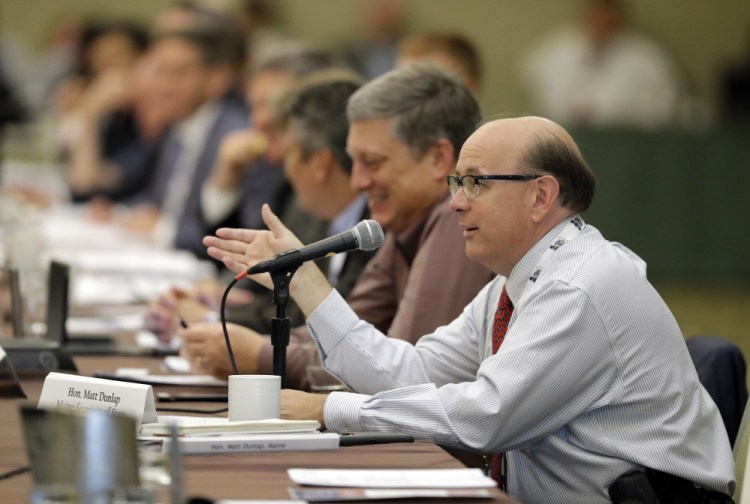You might think that a federal panel created to catch lawbreakers would scrupulously follow the law itself.
But you might want to think again. In apparent violation of federal transparency regulations, the Presidential Advisory Commission on Election Integrity has been excluding some of its own members from deliberations. Now one of them, Maine Secretary of State Matthew Dunlap, is suing to get the commission to do what it should be doing as a matter of course.
In his federal lawsuit, filed Thursday, Dunlap outlines an information freeze that began this summer, when his communications with the panel slowed to a few emails focusing on logistics rather than fact-gathering or analysis.
Since Sept. 12, the date of the commission’s second meeting, Dunlap has “received utterly no information or updates” of any kind, he wrote in an Oct. 17 records request prompted by a reporter’s question about the arrest of a commission staffer. The secretary of state hadn’t even known that the staffer had been hired. Both last month’s records request and a second one Nov. 1 have gone unanswered.
Although Dunlap is the only Democratic commissioner who’s suing, he’s not the only one being kept out of the loop. New Hampshire Secretary of State William Gardner also has not heard from the commission since Sept. 12, he told the Press Herald on Thursday. The same goes for Jefferson County (Alabama) Probate Judge Alan King, according to USA Today, and West Virginia county clerk Mark Rhodes, the website ThinkProgress has reported.
So of the five Democrats originally named to the panel, four say they’ve been shut out of its activities. The fifth, David Dunn, died unexpectedly during heart surgery Oct. 16, and there’s been no talk of replacing him on the part of the commission’s Republican co-chairs, Vice President Mike Pence and Kansas Secretary of State Kris Kobach, Dunlap told ThinkProgress on Thursday.
The public and the Democratic commissioners all have a right to know whether Pence, Kobach and others are carrying on the commission’s work without them, given what’s at stake. The co-chairs have made clear that they take seriously the panel’s specious mission – to tackle the vanishingly rare problem of voter fraud – which means they may well be working without Democratic input on initiatives aimed at voter suppression.
Kobach and other true believers have already used their baseless concerns to justify mandatory photo-ID laws and other regulations that serve only to keep likely Democratic voters from casting a ballot. That the U.S. government is enabling the development of equally harmful policies is bad enough – this process should be done where everyone can see and challenge it.
We’re happy that Maine’s secretary of state is putting the pressure on, and we hope that his legal fight forces the commission to make clear how far it will go in its fact-averse quest to disenfranchise legitimate voters.
Send questions/comments to the editors.



Comments are no longer available on this story